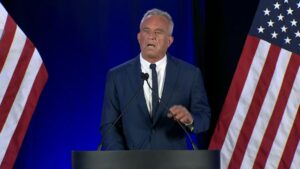Looming US Supreme Court Climate Decision Could ‘Doom’ Hope for Livable Future
Amid widespread outrage over recent rulings, the U.S. Supreme Court is expected to issue another decision this week that legal experts and activists warn could imperil the Biden administration’s climate goals and thus, the planet itself.
West Virginia v. Environmental Protection Agency (EPA)—one of the few remaining cases from this term—is “the most consequential climate case in decades,” Sierra Club said Monday.
If the court’s right-wing supermajority sides with GOP attorneys general over the EPA in this case, it could strip the federal agency of its authority to limit planet-heating pollution from power plants—and a sweeping ruling from the justices could go even further.
“The immediate issue is the limits of the EPA’s ability to regulate greenhouse gases. The broader issue is the ability of federal agencies to regulate anything at all,” explained physicist Robert Rohde, lead scientist at the nonprofit Berkeley Earth, in a series of tweets Monday.
“Conservatives have long wanted to reduce the ability of the federal agencies to impose regulations, and this case provides the Supreme Court a chance to do that,” he added. “If they do, it could have far-reaching and long-lasting consequences.”
U.S. Sen. Jeff Merkley (D-Ore.) similarly warned earlier this month of a ruling that “would gut the EPA’s authority to combat climate chaos—it could let corporations harm our health and the environment without consequences.”
“This could be the latest in a long line of dangerous decisions pushed by extremist justices to let corporations exploit their workers, their customers, and our shared future to get even richer,” he said.
Policy researcher Will Stancil on Sunday also tied the looming decision to the current justices’ track record, anticipating a ruling that sides with the Republican AGs to some degree.
“The Supreme Court’s legacy this term: forcing women to bear children, forcing families to raise those children in a society awash in guns, and forcing those children to grow up in a world of runaway climate change,” Stancil said.
“What an utterly villainous institution,” he continued, “unleashing untold suffering on future generations, for no good reason other than pursue their own poisonous social resentments.”
Concerns about the case have mounted since the court agreed to hear it last October. When oral arguments began in March, Jason Rylander, an attorney at the Center for Biological Diversity’s Climate Law Institute, said that if the justices block the EPA from addressing “deadly” pollution, then President Joe Biden “must lead the way on court reform to halt this power grab.”
A majority of respondents also said they are somewhat or very concerned about the Supreme Court removing environmental protections established under the Clean Air Act—a provision of which is the focus of the case. A majority of voters further believe the EPA should “be allowed to regulate air pollution that contributes to climate change.”
Originally published at Commondreams.org, written by Jessica Corbett.













